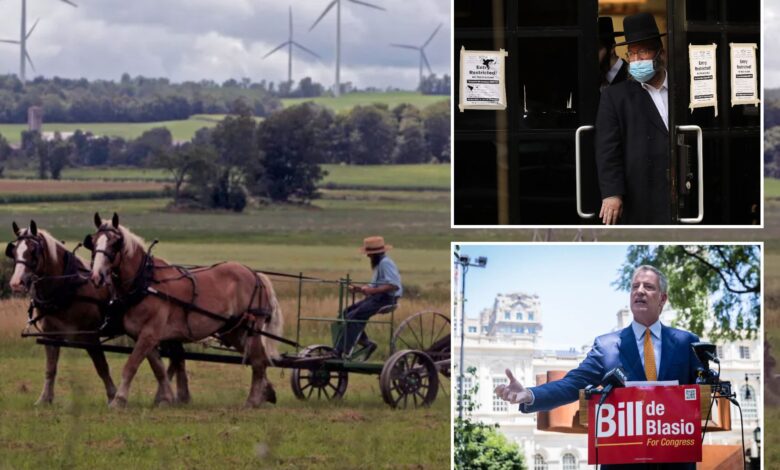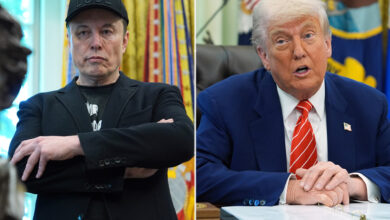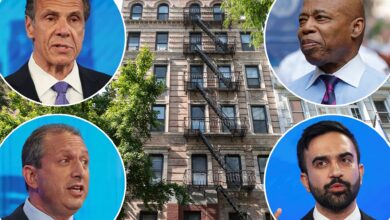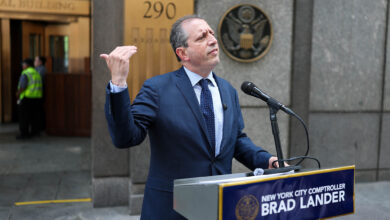NY’s Amish, vaccinations and the battle for the ‘greater good’

New York’s Amish community has become an unlikely minority on the frontlines of a battle pitting Constitutional rights against potentially draconian public health laws.
On March 3, the New York’s Second Circuit Court of Appeals ruled against Amish people who challenged a 2019 repeal of New York state’s longstanding religious exemption for school vaccination requirements.
That repeal, signed by then-Gov. Andrew Cuomo, followed four other activist states, including California, to impose state medical dictums on religious minorities.
In New York, ending religious exemptions was triggered after a 2018 measles outbreak in vaccine-hesitant ultra-Orthodox Jewish communities.
Measles — with a 0.1% mortality rate and once considered a natural part of childhood, like chickenpox — had been declared eradicated in the US until that flare-up.
A few years later, the assault by New York Democrats on religious minorities continued into COVID when New York City Mayor Bill de Blasio put locks around playgrounds in Hasidic areas of Brooklyn, even as restrictions were easing in other parts of the city.
He also dispersed a Hasidic funeral using public shaming tactics and targeted synagogues for raids and closures due to social distancing rules.
In the most recent case, Amish schools were slapped with tens of thousands in penalties in 2021 for teaching unvaccinated students — despite their isolated campuses receiving no public funding.
The Second Circuit — stacked almost entirely with Obama and Biden appointees — is no friend to religious minorities, rejecting religious freedom arguments against school vaccine mandates in similar cases in 2015 and 2021.
But the government’s botched COVID-19 response has ignited fierce debate over vaccines and bodily autonomy, now amplified with Robert F. Kennedy Jr. leading Health and Human Services.
There’s significant variation in attitudes toward vaccinations across Amish communities — but they share a historical skepticism in external authorities and their faith emphasizes self-sufficiency and a trust in God’s will.
They also have a pragmatic streak: While some ultra-conservative Amish communities outright reject all vaccinations, others may engage in a temporary acceptance when faced with an immediate threat, as happened during a 1979 polio outbreak in Amish communities across the Northeast and Midwest.
Still, See you in court! isn’t something you’re likely to hear from the Amish; they tend toward the Christian teaching of turn-the-other-cheek. When a religious freedom case involving the Amish appeared before the Supreme Court in 1972, it was taken up by a Lutheran minister who provided legal counsel on their behalf. The Amish won when SCOTUS ruled Wisconsin’s mandatory schooling law violated the First Amendment’s Free Exercise Clause by forcing their kids past eighth grade against their faith.
Yet public health precedent shifts the ground — SCOTUS has recently dodged tackling school vaccine mandates head-on.
Last year, the highest court declined to hear We The Patriots v. Connecticut Office of Early Childhood Development, the 2021 case coming from the Second Circuit that challenged Connecticut’s repeal of religious exemptions for schoolkids.
But pressure is building on SCOTUS to address the issue. “Our clients will be seeking review from the Supreme Court,” Aaron Siri, an attorney for the Amish, told The Post. “New York state brought this fight to the Amish by seeking to force this peaceful community to violate their sincerely held religious beliefs in order to attend their own Amish schools.”
Last year, Alabama Attorney General Steve Marshall spearheaded a 20-state amicus brief supporting the Amish community’s religious freedoms in rural New York.
Sadly, precedent is not on their side. It means reexamining a landmark decision dating all the way to 1905, Jacobson v. Massachusetts, which affirmed a smallpox vaccination mandate and established states’ wide-reaching “police power” to safeguard public health, even at the expense of personal freedoms.
A later 1944 Supreme Court ruling reaffirmed this and read like a COVID-era CNN monologue: “The right to practice religion freely does not include liberty to expose the community or the child to communicable disease,” Justice Wiley Blount Rutledge, an FDR appointee, wrote in the 5-4 Prince v. Massachusetts decision.
But the First Amendment isn’t a suggestion.
The Amish might be the canary in the coal mine for even greater acts of over-reach committed by authorities when the next catastrophe hits — all in the name of the “greater good.”
Science and medicine have been warped by power-hungry Democrats to serve as cudgels against minorities they don’t like — both the Amish and ultra-Orthodox Jews heavily swing Republican.
While vaccinations certainly can be part of maintaining that greater good, the Supreme Court must act when edicts cloaked in public health prioritize control over conscience.




